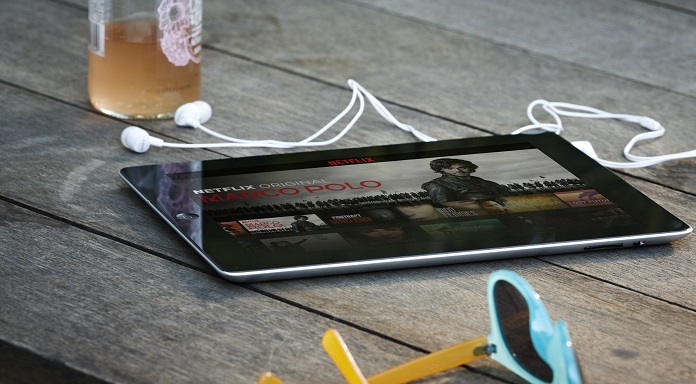“Binge-watch”: The word of the year
David Farnor | On 06, Nov 2015
“Binge-watch” is the word of the year. Not according to us, but according to Collins English Dictionary.
Yes, in case you were worried you were the only one secretly addicted to Netflix or Amazon Prime Video, the official keepers of the written word have reassured us all by revealing that usage of the word has doubled in the past year. That’s a lot of episodes of Orange Is the New Black.
What does “binge-watch” actually mean? Well, the term “binge” was originally a Lincolnshire dialect word meaning “to soak”, according to Collins, which came into use in the 19th century, with the notion that drinking to excess caused one’s brain to be soaked in alcohol. Since then, we’ve had “binge-eating” and “binge-drinking”, but the rise of VOD has seen the word paired with “watching”.
A study by Netflix last year decided that binge-watching counts as watching more than you would traditionally be able to watch on linear TV in a single session. Two or more episodes of a show, therefore, counts as a binge. But some like to consume even more, with 1 per cent of subscribers in Europe giving up an entire weekend to gobble up House of Cards season 2 all in one go when it was first released.
Helen Newstead, Head of Language Content at Collins, told the BBC: “The rise in usage of ‘binge-watch’ is clearly linked to the biggest sea change in our viewing habits since the advent of the video recorder nearly 40 years ago.
“It’s not uncommon for viewers to binge-watch a whole season of programmes such as House of Cards or Breaking Bad in just a couple of evenings – something that, in the past, would have taken months – then discuss their binge-watching on social media.”
It’s telling that, as with the OED when it added “binge-watch” to its dictionary last year, the word’s top ranking from Collins is accompanied by other technical terms, from “contactless”, referring to radio frequency payments that do not require a PIN or signature to be processed, and “shaming”, embarrassing someone by highlighting a perceived offence online or via social media, to “swipe”, which now no longer just refers to the general physical action, but also specifically to moving a finger across a touchscreen of a mobile phone to approve or reject an image.
Word that are still in popular usage in 2018 could be included in the next print edition of the Collins English Dictionary. Presuming we’re not all just binge-watching telly by then like the binge-watching binge-watchers that we are.




















